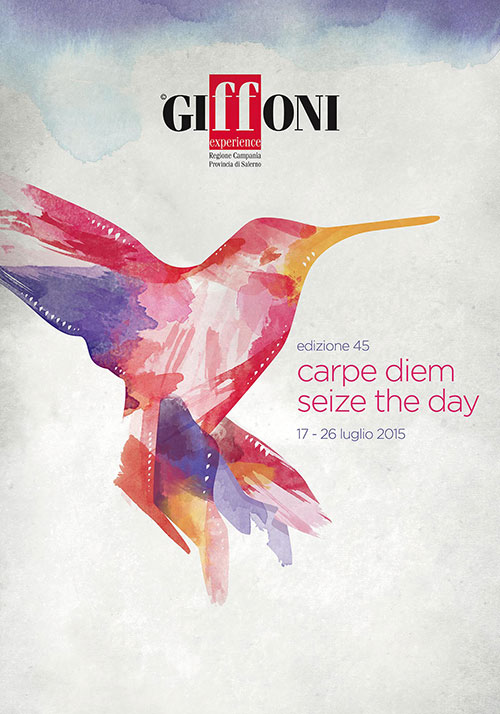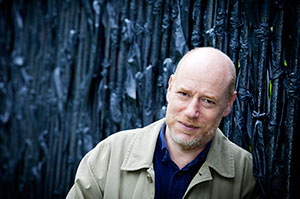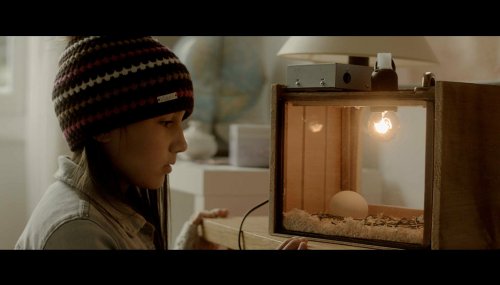Synopsis
For Cathy, it is not always easy to be born on February 29th, especially when for her tenth birthday, her father gives her an egg to hatch. But it is probably less difficult than to be suffering from myopathy as her best friend Margaux. When the egg hatches in front of Margaux, a duckling crawls out of the egg thinking that the little girl is its mother. But Margaux is unable to take care of the duckling, because she is stuck on a wheelchair and will soon have to go living in an institution. So her parents decided to get rid of the bird. When Cathy and Margaux learn that the duckling has to end up as canned food, they leave for an adventurous journey to rescue it.

Sections & Films
BIRDS OF PASSAGE
| Original Title | LES OISEAUX DE PASSAGE |
| Category | Official Competition |
| Section | Elements +10 |
| Tipology | Feature Film |
| Duration | 84' |
| Production Year | 2015 |
| Nationality | Belgium, France |
| Directed by | Olivier Ringer |
| Screenplay | Yves Ringer, Olivier Ringer |
| Director of photography | Mihnea Popescu |
| Editor | Alanté Alfandari |
| Sound | Vincent Mauduit, Igor Thomas-Gerard |
| Music | Bruno Alexiu |
| Main cast |
Clarisse Djuroski (Cathy) Léa Warny (Margaux) Alain Eloy (Cathy’s father) Myriem Akkhediou (Cathy’s mother) Angelo Dello Spedale (Margaux’s father) Jeanne Dandoy (Margaux’s mother) |
| Produced by | Yves Ringer, Antoine Simkine |
| Access |
|
 Olivier Ringer
Olivier Ringer
Born 1961, Brussels. After shooting the short films GOOD and HAUTE PRESSION, in 2006 he directed his first feature film, POM LE POULAIN. His second feature film, ON THE SLY (À PAS DE LOUP), was selected in Berlinale Generation 2011 and won the ECFA Award 2012 (European Children’s Film Association) for Best European Film for Children. BIRDS OF PASSAGE is his third feature film.
Director’s statement
“Most movies and games for the young audience take children into virtual worlds that do not exist. I would like to offer them a true story, simple, naturalistic, whose stakes and events could be experienced by them.
“By trying to overprotect our children for what we believe to be ‘their good’ in spaces called secure, the recurring message we are inducing to them is to believe that life is dangerous, even if it is probably right in some situations. We induce also that the adventure is not part of the life because the adventure is, in essence, full of unexpected. And yet, this is undoubtedly the unexpected that makes the spice of life. And so, somewhere, wanting to secure the lives of our children, we may prevent to live their life... Since she entered school, my youngest daughter shares her school years with a child suffering from myopathy. And when we ask her who is her best friend, she invariably answers: ‘Margaux’. This little girl, in her young age, could join the games of her schoolfriends. And over the years, she found herself increasingly isolated in her relations with other children because of her handicap due to her illness. But despite this, she exudes enthusiasm for life and such a love for the little time she has left, her behaviour led to a questioning of our own relationship to life and the world around us. Margaux knows that her time on Earth is not the same that the time of her friends, and this time, she is living it without spoiling the moment. Over the years, verbal communication has become practically impossible, but Margaux’s friends developed with her an extraordinary nonverbal complicity. Starting from the observation of Margaux and the apprehension of her illness, I absolutely do not want to develop a sordid story, I want this story to be an positive adventure that passes the idea, to children and parents, that it is better to live the life without asking too many questions about the inherent risks in the mere fact of living.
“The introduction of the little duckling in the life of Margaux, making her to assume the role of a mother in spite of herself, is the trigger that will enable her to live an adventure where she’ll put all her energy into the survival and independence of the bird. With her best friend, she will exceed the limits that have been imposed to her, allowing her to continue to live as long as possible with her lifelong friend. It seems to me important too that the story is told from Cathy’s point of view, Margaux’s best friend, so that the message send by Margaux is received by the main character, to who the young viewers can relate to. Just like they can identify themselves with Cathy and the relationship she has with Margaux. The two friends have been close to each other since a very young age, and, although the communication they have developed is ‘different’, Cathy does not have a detailed look at her best friend’s handicap. For her, this relationship seems quite normal. Living this adventure with her friend and becoming aware of her responsibility to the duckling, Cathy will evolve and grow, her eye will change, she is at a turning point, not really a child, not yet a teenager. Like Margaux, she will learn to enjoy the present moment.
“Cathy and Margaux’s story should challenge the young viewers because it asks a question, all children have unconsciously: will I be able to be independent and self sufficient as an adult? What should fascinate them in Margaux and in Cathy, is that they act by taking the decision to go and live their adventure until the end, with the ultimate goal for their ‘offspring’ to fly on its own wings, literally and figuratively. Inside themselves, all children know that this is what will happen one day when they grow up. Seeing Margaux achieve her goals despite her handicap, seeing Cathy able to fulfil their basic needs during this adventure, children will feel reassured. Because if Cathy, but also Margaux succeed, they should also, manage to do so. And becoming an adult becomes a journey that seems within reach, despite the difficulties and risks.
“Our children are showered with films in CGI or animation, as if we could not tell them stories taking place in the real and as we had something to hide. With BIRDS OF PASSAGE, I want to take them into a true story and immerse them in an adventure rooted in reality and cultural referents in which they can relate”.
production
Ring Prod
Les Films d’Antoine
Good Lap
RTBF
world sales
Attraction Distribution
5455 De Gaspe Ave., Suite 803, H2T 3B3 Montréal - Canada
phone +1 5148461222
fax +1 5148461227
This email address is being protected from spambots. You need JavaScript enabled to view it.
www.attractiondistribution.ca
festival contact
Ring Prod
16 place de l’Université, 1348 Louvain-la-Neuve - Belgium
phone +32 3440785
This email address is being protected from spambots. You need JavaScript enabled to view it.
www.ringprod.be








